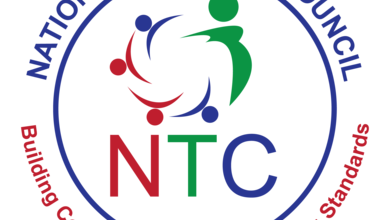Why pupils at “scripted” schools get higher marks
JOIN OUR GENERAL CHANNEL FOR EDUCATIONAL UPDATES
TEACHER PROFESSIONAL DEVELOPMENT TEACHERS ONLY
Why pupils at “scripted” schools get higher marks
There maybe lots of factors but as Teachers and Parents, we need to identify the factors.
A controversial chain of low-cost private schools produces startling results
In an ideal world, primary-school teachers in Africa would all be well-educated, highly motivated and dreaming up lessons that zing.
In reality many of the continent’s educators need support. For several years low-cost private schools run in several countries by NewGlobe, a profit-seeking firm, have used radical means to keep lessons to a consistent standard.
NewGlobe insists that teachers deliver tightly scripted lessons written by a central team and sent to them on electronic tablets. The instructions lay out exactly what to write on the blackboard and even when to walk around the classroom. Similarly detailed plans dictate the daily checks head teachers must carry out in order to make sure their staff are up to scratch.
Research published in a working paper on June 6th suggests that this highly standardised approach to schooling may have been serving pupils well. The study—by Michael Kremer, a Nobel prize-winning economist, and colleagues at four American universities—tracked more than 10,000 children who applied for free places at NewGlobe schools that were distributed by lottery in Kenya in 2016. (NewGlobe’s schools are better known by the brand name Bridge International Academies.)
After two years, children who won those places were found to have learned oodles more than applicants who missed out and went to government schools. For pupils of primary-school age, the gain was equivalent to almost a whole additional year of schooling.
Toddlers who won places in pre-primary classrooms ended up one-and-a-half years ahead of their peers. The improvement in grades was particularly good for children who had performed badly in tests before they joined. On average such pupils learned more over two years than those who were already doing well elsewhere.
These gains are off the charts and among the largest recorded in any rigorous study, according to the authors. They seem to have come at a relatively low cost. At the time of the study only about a quarter of NewGlobe’s teachers in Kenya had more than a secondary education, compared with three-quarters of those in public and other private schools. They earned between one-third and one-fifth as much as government teachers.
The high marks awarded to NewGlobe are especially striking, given the controversies that have long dogged the firm. Since its first school was founded in 2009 it has faced ferocious opposition from trade unions and international ngos, many of which hate the idea of profit-seeking schools. They say the company devalues good teaching, promotes rote-learning and has played fast and loose with national curriculums. Their campaigns have made it harder for NewGlobe to fill its private schools; in recent years it has closed a lot of them. Since Mr Kremer and his colleagues began their study, the number of branches in Kenya, its first and biggest market, has fallen from 405 to 111.
The new research may have come too late to pep up NewGlobe’s private-school business, which its bosses seem to have given up trying to expand. But the findings will bolster its new strategy: selling to local and national education authorities the tools and training they need to run schools along the lines that its own institutions have demonstrated. It is already working with governments in three Nigerian states and has recently been hired to do something similar in Rwanda.
Whether NewGlobe’s methods will yield the same success outside Kenya, especially in government schools over which it has little or no direct control, is an open question. A study of 23 government-funded schools that NewGlobe took over in Liberia in 2016 found that they were expensive to run and that their pupils benefited less than those in Kenya. Other old-school education providers in that study taught children more cheaply than NewGlobe did and got better results.
Africa’s dismal education systems require urgent attention. Good ideas for fixing them at scale are rare.
Governments and researchers would be wise to keep putting scripted schooling, however controversial, to the test.
In Ghana private schools and Public schools are working hard to achieve a common goal, Those who follow specific instructions make their students pass better than those who are left to do anything.
Rote-leaning must be discourage to enhance creativity.
Credit. www.economist.com
HOME
OUR GENERAL CHANNEL FOR EDUCATIONAL UPDATES
TEACHER PROFESSIONAL DEVELOPMENT TEACHERS ONLY






